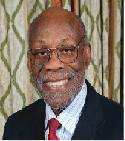Report from the Secretariat of the Black Community Forum
“The Secretariat of the Black Community urges the City to return to the earlier, and more holistic and integrative, approach that characterized its relationship with Black Communities over three City Administrations: The Dore, Borque, and Tremblay Administrations.”
Dr. Clarence S. Bayne, President of BCRC and Chair of the Secretariat of the Black Community Forum.
The Black Community Forum is a network of 12 Organizations that have agreed to meet as a Conference of organizations to set and approve priorities that create the framework for their operations and guidelines for activities which serve to maximize the objective and subjective wellbeing of the Black Community. Consistent with Recommendation 6.5.1.1 of the Forum Report, the conference has created an administrative structure, the Secretariat, to conduct its administration and implement its recommendations and promote the purposes of the Forum. The secretariat is located at office space in the BCRC, 6767 Cote des Neiges. The Secretariat speaks for the FORUM under the authority given to it by recommendations 6.5.1.1 to 6.5.1.13 of the Forum Report (Manual). It is directly accountable to the Conference of Member Organizations.
Members of the Conference of organization: The Black Community Forum
1. The Black Community Resource Center(BCRC)
2. Quebec Board of Black Educators (QBBE)
3. The Black Theatre Workshop of Montreal (BTW)
4. The Union United Church
5. Universal Negro Improvement Association of Montreal (UNIA)
6. The Black History Month Round Table (BHMRT)
7. La Ligue des Noir (Black Coalition)
8. The Institute for Community Entrepreneurship (ICED, Concordia)
9. The Black Writers Guilds (Kola)
10. Black Awards Scholarship Fund (BASF)
11. The Rights and Freedom Ad Hoc Community Committee
12. The BSC Black Community Archives
These 12 agencies, by their collaboration and partnership within the group and with a wide range of organizations and memberships outside the group, create a network of services that extend beyond the Black communities. This covers the arts, culture, education, health, employment and employability; youth education and development; library and archive services; immigrant settlement, diversity and anti-racism and discriminatory practices; social and economic development; and governance, human rights and freedoms.
The Black Community Forum is not a Chartered Federation. But its members work together cooperatively and in a manner consistent with Recommendations 7.2.1 to 7.2.10 of the Forum Report. In particular Recommendation 7.2.1 states:
“We recommend that the forum created by this meeting become an ongoing mechanism, which will facilitate the process of harmonizing the various agendas into a unifying programme of activities for the community.”
The Forum, consistent with Recommendation 7.2.5, functions through the legal status of the member organizations and is bound together in a spirit of “collaborative unity and existential responsibility.” Collaborative unity means that the organizations concerned agree to work together through their various specializations to represent, and achieve, the greatest good for the Black community and society, and that they intend to do this through a system of inter-organization communication and cooperation. Existential responsibility means that each organization is responsible to the community through their respective charters, mission and mandates to provide services to the community in the most effective and efficient way possible. For this reason, membership in the Forum requires that an organization provides services to the Black Community; and that they are registered or chartered in Quebec as not-for-profit social enterprises, cultural and community based agencies in good standing; and that they engage in community and social economy activities that address the priorities of the community. This legal framework of Canadian laws governing not-for-profit organizations assures the community at large that they are accountable. These organization must report annually to the Canadian government, which monitors their activities, in the interest of the citizens of all the communities that they are given a charter to serve. It is the responsibility of the Secretariat to monitor the published public reports of their members to ensure that they are in good standing.
In addition, each member organization agrees to accept and respect the following purposes and to respect and support the recommendations of the Forum in a manner consistent with their respective charters, and the principle of “Existential responsibility”.
Purposes of Forum
1. To develop a process which will identify a long-term development plan for the Black Community.
2. To ensure that this planning process is cooperative and collaborative.
3. To identify and promote a structure to support the planning process.
4. To encourage and promote the development of strategic partnerships and networks that benefit the Black community, and the larger society.
5. To provide a network of communication, the transfer of knowledge and information, and to facilitate the general expansion of social capital.
In order to fulfill the purpose of the Forum, the Secretariat sent a communique to the Borough of NDG/CDN; the City of Montreal; the office of the Premier of Quebec and the Prime Minister of Canada; the Minister of Justice; the Minister of Heritage; and the Quebec Minister of Immigration, Diversity and Inclusion. This was to seek assurance that the Black community’s presence in Montreal and Quebec would be more fully recognized and we requested a meeting to discuss the concerns expressed at the Forum of June 16, 2017. To date, we have received acknowledgements of receipt of our communique from all of the parties. But, we must openly recognize the respect and seriousness given to the communique by the Ministry of Justice, the Mayor of NDG-CDN (Russell Copeman) and the City of Montreal (Mayor Denis Coderre). We still await a response to our request to meet from the other agencies.
Meetings with the City and the Mayor of NDG-CDN
In response to our Communique, the Mayor of CDN-NDG (Mr. Russell Copeman) invited the Secretariat to organize the Cote des Neiges Black Community organizations, in order to meet to discuss the issue of the failure of the City to officially invite the Black Community to participate in the Montreal 375th; and to discuss relationships with the City. The organizations that attended were BCRC, QBBE, La Ligue des Noirs, and, to speak on the 375th problem, the Black History Month Round Table. This meeting introduced the Secretariat to the Mayor of NDG-CDN and enabled the Secretariat to engage the Mayor’s attention and support on larger issues affecting the relationship between the City and the Black community across all arrondisements. The meeting opened the channels to the City of Montreal for formal communications with the City, represented by Mr Dimitrios (Jim) Beis, Maire de l’arrondisement de Pierrefonds-Roxboro, Membre du comité exécutif Responsible de l’approvisionnement, des sports et loisirs ainsi que des communautés d’origines diverses. The Forum, represented by the Chair of the Secretariat, presented to the City a number of issues and suggested ways that the City can better serve the Black community of Montreal. The Secretariat sought a more comprehensive and long-term approach, as opposed to the current fragmented short-term approach. The secretariat presented to the City the option of returning to, and revitalizing, the systematic planning processes and agreements that existed under the Doré, Borque, and Tremblay administrations, as opposed to the presented defused system of relationships. In particular, the Forum has asked that the City return to, and review, the formal agreements reached under the Tremblay Administration, in 2004, between the City and the Black community. According to that agreement, the City, in a letter from the Mayor’s Office November 2014, agreed to undertake a plan of action that would address the following priorities: strengthening of families; addressing the problem of violence among youth; supporting programs in the community relating to the employment and employability of Black youth; improved access to better housing; promoting the socio-professional and economic integration of youth; facilitating access to the City infrastructures; fuller integration of the Black communities into the City and representation at the advisory and decision making bodies of the City; and full representation of the contributions of Black people to the history and development of Montreal. To this we added new concerns expressed at the June 16, 2017, Conference of Black Organizations (Forum), in Montreal: improved anti-racism strategies; improvements in the justice system; the strengthening of Black organizations; and sustaining the vitality of the English speaking Black community, whose growth seems to be stagnating. In particular, we have asked the city to return to the advocacy role it played during that period, on behalf of the Black community within the Boroughs and other levels of Government.
City’s Response
The response of the City has been very positive. There is a firm commitment from the City to discuss problems with the Secretariat that need to be addressed urgently, and marshalling the resources of the City and the community to help resolve these problems. The City has indicated that it has already made adjustments to its evaluation criteria for supporting community projects. While the City emphasis on the support of organization activities remain focused on sport and recreation, it recognises the need to support events and organizational activities that are social or economic in orientation. The City has agreed that it will monitor more closely the funding procedures to ensure that when, under the existing system criteria, projects do not fully meet the criteria for sport and recreational activities, that the agencies advise the organization on ways to modify the projects that they become valid for funding. It is our understanding that the City has advised civil servants in the City and Boroughs that they should actively support organizations in the planning, development, and formatting of their grant applications in order to improve their success ratios. The Secretariat is, in fact, currently engaged with the City to ensure that these new approaches are taking place; and that Black community organizations are being made aware of opportunities for support and funding at the City and in the Boroughs.
The City is, at present, responding to a number of requests made by the Secretariat to assist and support projects in the Black Community: the Pan-black Identity defining events project assigned to the Black History Mount Round Table for implementation by an alliance of Black Community Organizations; the development of a Black Community creative and cultural tourism sector involving several Black heritage sites and Black English Speaking Events; and the development of a systematic Black Toponomy strategy in collaboration with the Black Forum (Secretariat); assistance with and support for a social and economic summit to deal with the sustaining of the vitality of the English speaking Black communities; and support for the new initiatives launched by the BCRC, in collaboration with the QBBE and the BSC, to stop the brain drain of Quebec educated English speaking and bilingual Black youth from the community. This project represents the second stage of a partnership between the BCRC and the Montreal CEDEC. The first stage was a survey conducted by the CEDEC to determine the demand for the project. The BCRC has undertaken the second stage which is the implementation of a program to promote and improve the employment, here in Quebec, of Black youth graduating from Quebec colleges, technical institutions, and Universities.
For the full version of Semaji March 2017 Click Here




